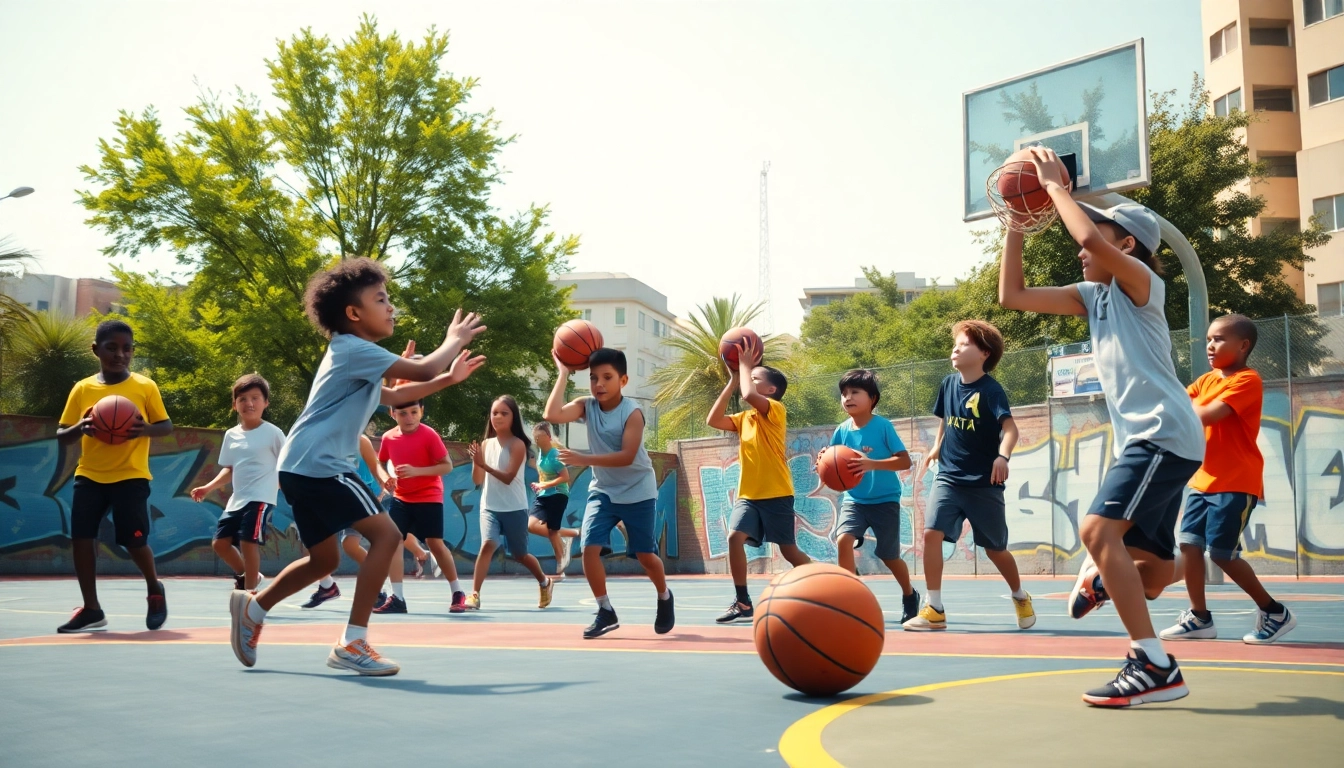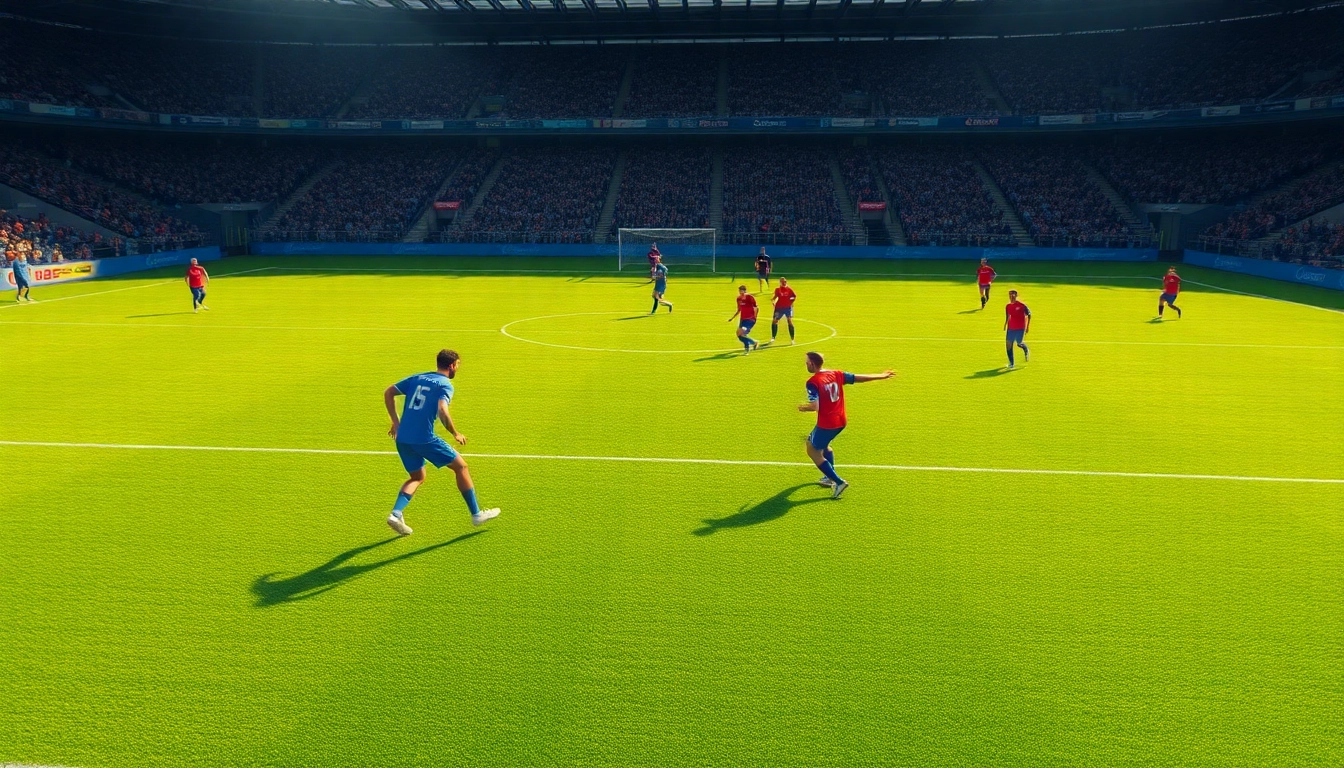Understanding the Basics of Basketball for Young Enthusiasts
Basketball, a dynamic team sport, offers young athletes not only the thrill of competition but also the opportunity to develop essential life skills. For young basketball enthusiasts, understanding the fundamental aspects of the game is a crucial first step toward becoming skilled players. This foundation will serve them well as they engage in challenges, learn teamwork, and pursue their passion for the game.
The Fundamental Rules of Basketball
Basketball has a set of fundamental rules that govern how the game is played. Here’s a brief overview:
- Objective: The main objective is to score more points than the opponent by shooting the basketball through the opposing team’s hoop.
- Game Duration: A standard game consists of four quarters of 12 minutes each in the NBA, while youth leagues may have shorter durations.
- Team Composition: Each team has five players on the court, and substitutions are allowed.
- Scoring: Points can be scored in various ways: 2 points for shots made inside the three-point line, 3 points for shots from beyond it, and 1 point for free throws.
- Violations: Common violations include traveling (moving without dribbling), double dribbling (dribbling again after stopping), and fouls (illegal physical contact).
Essential Skills Every Young Basketball Enthusiast Should Learn
To thrive on the basketball court, young athletes must master various skills:
- Dribbling: The ability to bounce the ball as you move is crucial. Practicing different dribbling techniques can enhance control.
- Shooting: Developing accurate shooting skills involves proper technique, which includes stance, grip, and follow-through.
- Passing: Effective passing helps in ball movement and teamwork. Learning to pass with precision can open opportunities for scoring.
- Defense: Knowing how to defend against your opponent, including techniques like positioning and footwork, is vital to prevent scoring.
The Importance of Teamwork and Sportsmanship
Basketball is fundamentally a team sport that relies on collaboration. Young players must learn the values of teamwork and sportsmanship:
- Collaboration: Success in basketball often comes from effectively working with teammates, understanding each player’s strengths, and creating strategies.
- Communication: Encouraging open lines of communication promotes better coordination during games and practices.
- Respect for Opponents: Cultivating a respectful attitude toward opponents and embracing sportsmanship can enhance player enjoyment and development.
Drills and Exercises to Improve Basketball Skills
To become proficient, young basketball players should engage in specific drills and exercises. These practices focus on honing individual skills while fostering teamwork.
Effective Dribbling Drills for Youth Players
Dribbling is a foundational skill that requires practice to master. Here are a few effective drills to enhance dribbling skills:
- Stationary Dribbling: Players practice dribbling without moving, focusing on ball control and maintaining a low position.
- Obstacle Course: Set up cones or markers and have players dribble through them, enhancing coordination and control.
- Partner Drills: Players work in pairs, taking turns defending and dribbling, which improves reaction time and decision-making.
Mastering Shooting Techniques for Young Basketball Enthusiasts
Shooting is one of the most critical aspects of basketball. Here are some drills to help young players improve their shooting accuracy:
- Form Shooting: Players focus on their shooting mechanics from close range, emphasizing their stance, grip, and follow-through.
- Shooting Games: Engage in games like “Around the World” that require players to shoot from various spots on the court.
- Free Throws: Practicing free throws helps build consistency under pressure.
Strength and Conditioning Exercises to Boost Performance
In addition to skill development, physical conditioning plays a vital role in a player’s performance:
- Agility Drills: Activities like ladder drills enhance foot speed and agility on the court.
- Strength Training: Age-appropriate strength exercises, such as bodyweight squats and resistance training, can augment overall performance.
- Endurance Training: Incorporating cardiovascular exercises like running or swimming will enhance stamina for extended gameplay.
Building Confidence on the Court as a Young Player
Confidence is key to success in basketball. Cultivating a positive mindset can greatly benefit young players as they navigate challenges.
The Role of Positive Mindset in Youth Basketball
A positive mindset is essential for overcoming obstacles and improving performance. Here’s how players can develop it:
- Visualizing Success: Encourage players to visualize themselves successfully completing plays or scoring points.
- Positive Self-Talk: Teach young athletes to replace negative thoughts with affirmations that promote confidence.
- Embracing Challenges: Encourage players to view challenges as opportunities for growth rather than potential failures.
Overcoming Performance Anxiety During Games
Performance anxiety can hinder a young athlete’s ability to perform. Strategies to mitigate this include:
- Deep Breathing: Practice relaxation techniques, such as deep breathing, to calm nerves before the game.
- Preparation: Ensuring players are well-prepared through practice can alleviate anxiety during games.
- Focus on the Process: Encourage players to focus on their effort and teamwork instead of solely on the outcome.
Setting Achievable Goals for Young Basketball Enthusiasts
Goal-setting provides direction and motivation. Here’s how young players can set effective goals:
- SMART Goals: Encourage players to set Specific, Measurable, Achievable, Relevant, and Time-bound goals.
- Short-Term and Long-Term Goals: Help players define both immediate goals (like improving shooting technique) and long-term aspirations (such as making the school team).
- Reviewing Progress: Regularly reviewing goals allows players to celebrate achievements and adjust strategies as necessary.
Finding the Right Coaching and Training Opportunities
The quality of coaching can significantly impact a young player’s development. Identifying the right training opportunities is essential for growth.
Identifying Quality Basketball Camps and Clinics
Attending camps and clinics can provide intensive skill development. When searching for opportunities, consider:
- Reputation: Look for camps led by experienced coaches or former players.
- Curriculum: Evaluate the curriculum to ensure a focus on both skill development and teamwork.
- Reviews and Testimonials: Read feedback from previous participants to gauge the camp’s effectiveness.
How to Choose the Right Coach for Young Players
A good coach can inspire and cultivate a joy for the game. Consider these points when choosing a coach:
- Coaching Style: Ensure the coach’s style aligns with the player’s needs—some players thrive under strict instruction, while others benefit from a more relaxed approach.
- Experience: A coach with a background in youth training will better understand developmental needs.
- Communication: A coach who communicates effectively and fosters a positive environment will help players feel valued and engaged.
Creating a Supportive Environment at Home
Parents and guardians play a vital role in a young athlete’s experience. Fostering a supportive home environment can promote a love for the game:
- Encouragement: Offer praise for efforts rather than solely focusing on wins or losses.
- Involvement: Attend games and practices to show support. Engage with coaching staffs and other parents to build a community.
- Balanced Approach: Emphasize the importance of education and personal development alongside sports participation.
Engaging with the Basketball Community
Community involvement enhances the basketball experience by fostering connections and learning opportunities. Young players should look for ways to engage.
The Benefits of Joining Local Basketball Leagues
Participating in local leagues provides young players with a platform for growth:
- Competition: Regular games provide real-game experience that hones skills.
- Team Development: Playing as part of a team fosters camaraderie and the development of social skills.
- Coaching Experience: Local leagues often feature various coaching styles and philosophies, aiding personal growth.
Participating in Youth Outreach Programs and Events
Youth outreach programs can have a significant impact on young players, offering additional support and resources. Some key aspects include:
- Skill Development: Programs often focus on both basketball skills and life skills.
- Networking Opportunities: Players can meet peers who share similar interests, fostering lifelong friendships.
- Community Engagement: Involvement in outreach can instill a sense of responsibility and community involvement from a young age.
Accessing Inspirational Stories of Successful Young Basketball Players
Young athletes often gain motivation from the stories of those who have succeeded in basketball. Sharing inspirational biographies and documentaries can help:
- Role Models: Highlighting successful players from diverse backgrounds can provide relatable figures for young enthusiasts.
- Overcoming Adversity: Stories of struggle and triumph resonate deeply, instilling resilience in young players.
- Encouraging Passion: Showcasing players who demonstrate a sincere love for the game can ignite a similar passion among young athletes.



